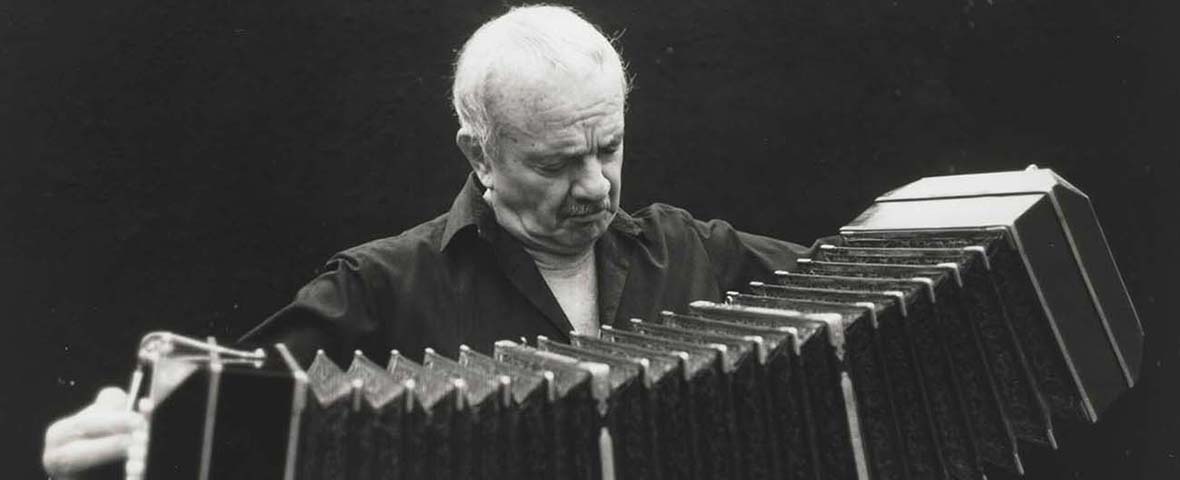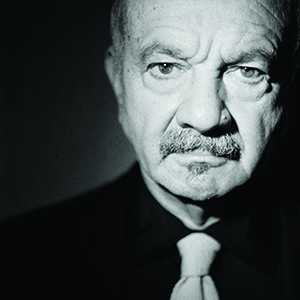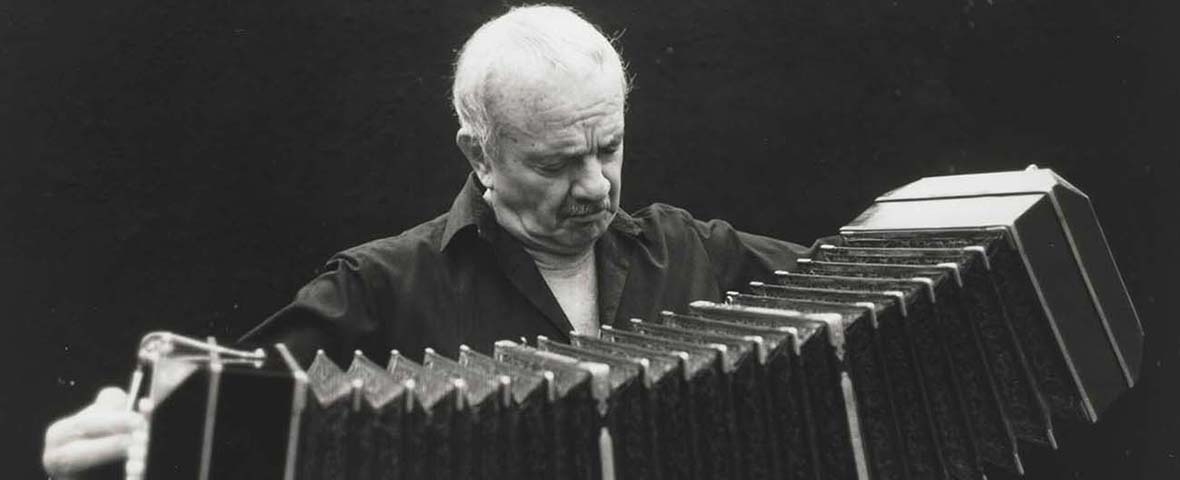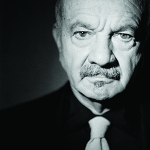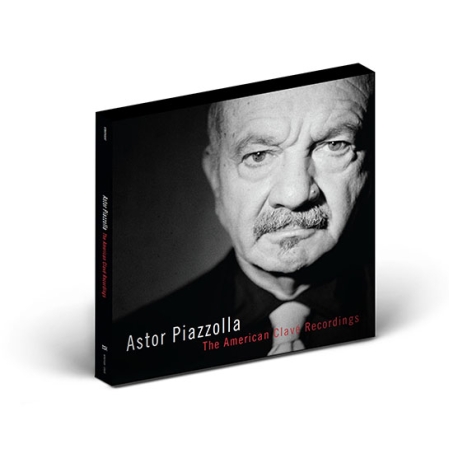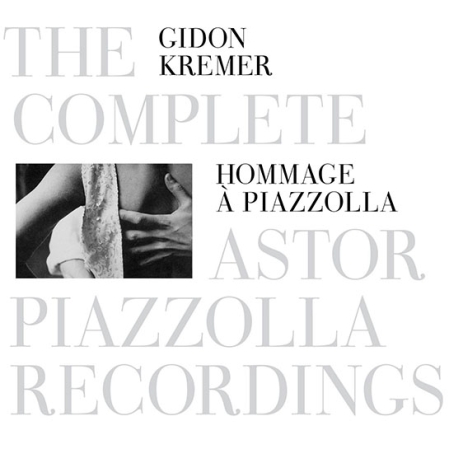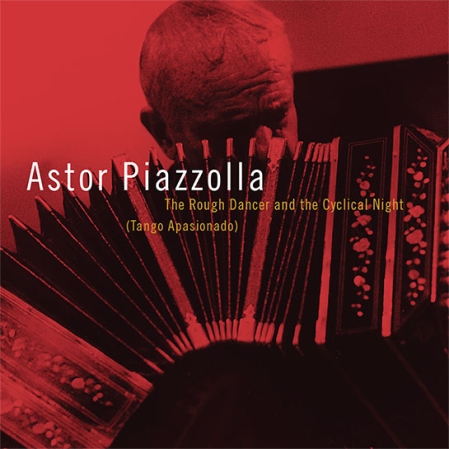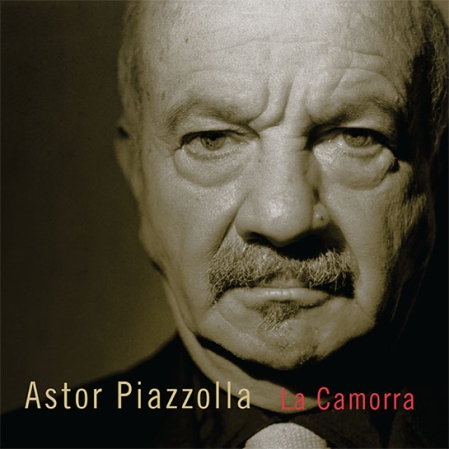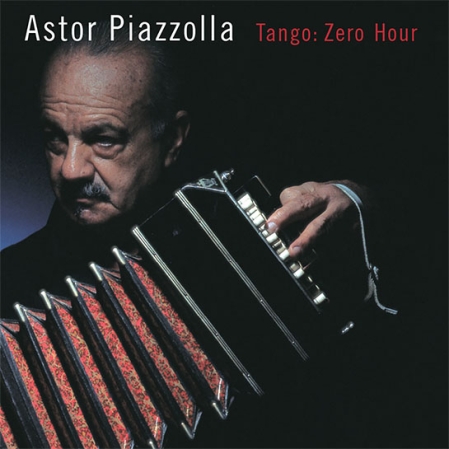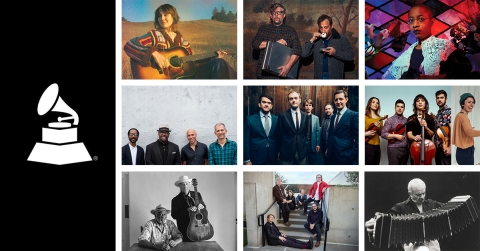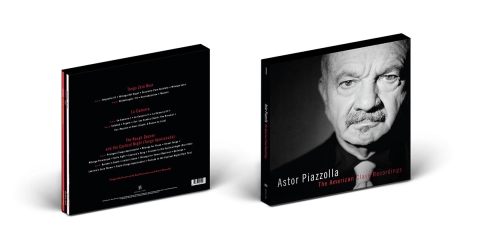Astor Piazzolla’s nuevo tango, which incorporates classical forms and jazz elements into the traditional tango, was so controversial at its advent that Piazzolla had his life threatened on numerous occasions and was even exiled from Argentina. The traditional tango, born out of the bordellos of Buenos Aires in the way that jazz began in New Orleans, had been haunted by its origins for decades. Piazzolla, with his innovative style and desire to legitimize the tango and bring it to a serious musical audience, changed the face of the music forever.
Born in Mar Del Plata, Argentina in 1921, Piazzolla moved to New York with his father at an early age and lived there until 1937. At age nine he was asked by the famed tango singer/composer Carlos Gardel to appear in his movie El Dia Que Me Quieras. Upon his return to Buenos Aires, he learned to play the bandoneón, began arranging for Anibal Troilo’s orchestra (one of the main tango bands of the day), and studied with the composer Alberto Ginastera.
The year 1954 marked a pivotal point in Piazzolla’s career, when he won a scholarship to study composition with the celebrated pedagogue Nadia Boulanger in Paris. It was Boulanger who encouraged Piazzolla to develop the popular music of his heritage, to make tango a serious music. In 1955 he organized his Octeto Buenos Aires, after his studies with Boulanger and an encounter with Gerry Mulligan’s Octet. It signified the beginning of what came to be known as nuevo tango.
Other ensembles followed, including Piazzolla’s first quintet, which worked together from 1960 to 1970. The New Tango Quintet, convened in 1978, was in a class by itself. When Tango: Zero Hour was released, the ensemble had spent nearly 10 years together and Piazzolla was at the peak of his powers. SPIN magazine called Tango: Zero Hour “extraordinary,” and The Village Voice called Piazzolla “a modern master.” Jon Pareles of the New York Times said, “To hear Mr. Piazzolla’s tangos as musical marvels is beside the point. As edgy lines and long-breathed tunes defy and embrace one another, the tangos suggest that even in the modern world, romance survives.”
